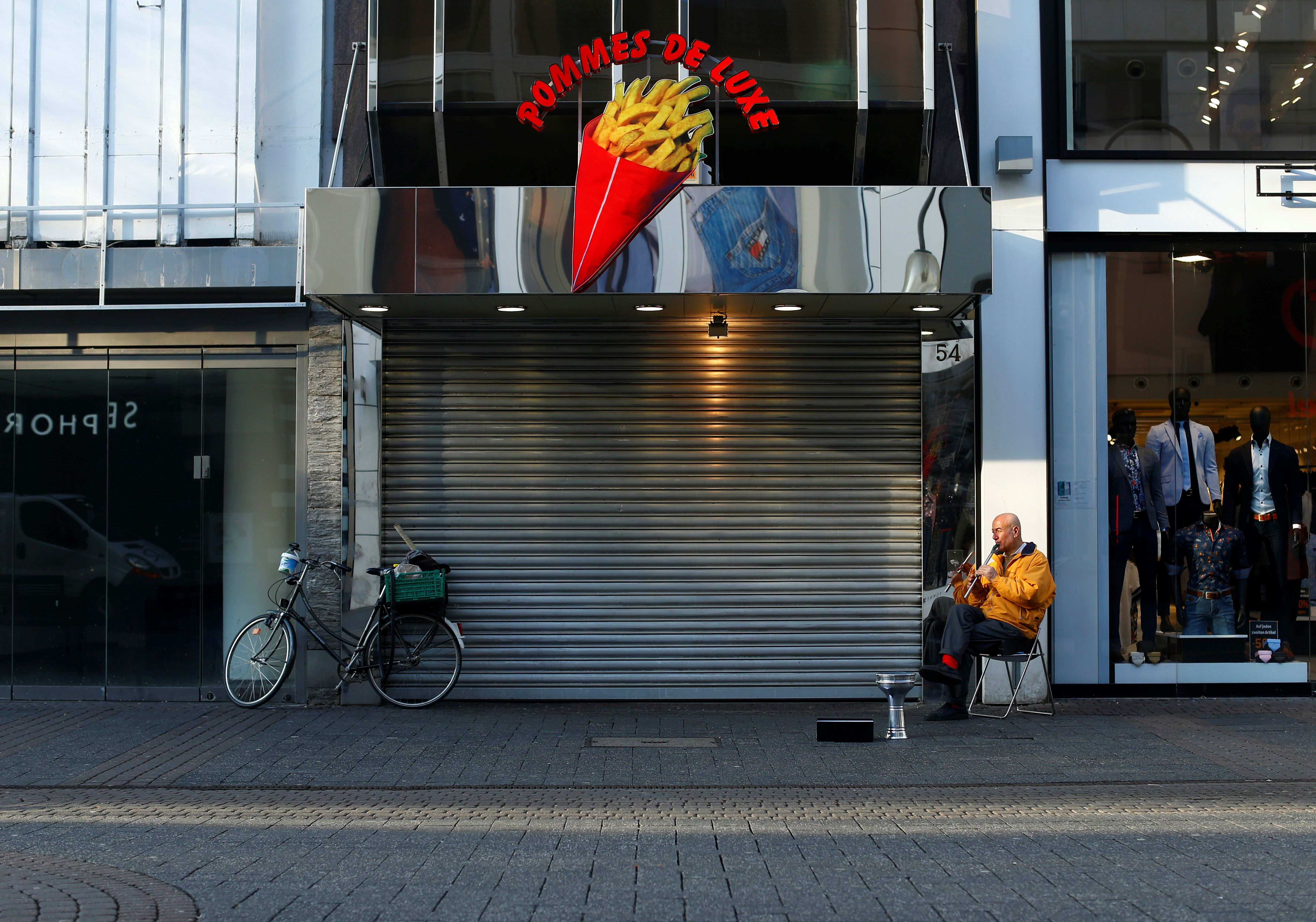Financial “Shield”: Germany’s Actions to Face the Pandemic-Fuelled Economic Crisis

Germany began 2020 hoping to overcome the general economic slowing noted over several recent quarters. However, the outbreak of the coronavirus pandemic has destroyed optimistic expectations. According to new forecasts, the German economy will experience a deep slump in the first half of the year. Despite expectations of a rebound in summer and autumn, the whole of this year will be marked by recession of up to 6%.
Germany is particularly vulnerable to global epidemic repercussions. Due to their high dependence on exports, German companies will suffer from the demand slump in the world market. The pandemic has also disturbed the functioning of international supply and cooperation chains, leading to downtime, for example, in the automotive industry. Also, the internal dimension of the epidemic has an increasing impact on GDP via the rapidly growing number of patients (more than 10,000 on 18 March in Germany) and restrictions introduced by the authorities, including closing schools, cancelling mass events, and increasing border controls. There is no doubt that in the first wave of the crisis, Germany will have to face not only rising costs in its healthcare system but also huge losses in its transport, tourism, gastronomy, event- and trade-fair industries. The second wave will raise tension throughout the entire economy, including the banking sector (Deutsche Bank’s shares have fallen by half) and insurance and medium-sized industrial companies. Given these conditions, the government decided it was time to take extraordinary measures against the crisis.
Anti-Crisis Programme
Initially, the German authorities avoided a strong reaction by sticking to the doctrine of a balanced budget. However, impatience grew in expert circles: on 10 March, representatives of leading economic institutes called on the government to change course in economic policy. Three days later, the minister of finance, Olaf Scholz, and the minister of economy and energy, Peter Altmaier, presented what they call a “protective shield” plan for employees and companies.
The first pillar of the plan is “short-term work” (Kurzarbeit, or KA), which was effectively used after the 2008–2009 crash. Companies experiencing problems can reduce employees’ working time and their remuneration with the difference in net wages covered by the government. The Scholz-Altmaier programme aims to make access to KA much easier from April this year. For example, even companies in which just 10% of the employees are affected by the reduction of working time will be able to take advantage of it. KA will also cover employees working under fixed-term contracts. Also, the Federal Labour Agency (Bundesagentur fuer Arbeit, BfA) will take over the costs of social security contributions for employees covered by the programme.
Another area of government action concerns fiscal duties. It proposes deferrals of tax payments, reduction of advances, and suspension of enforcement proceedings until the end of 2020. The plan recommends a flexible approach towards payers of all relevant authorities, applied not only to income taxes but also to indirect taxes on energy, insurance, sales, etc.
The third group of anti-crisis measures is aimed at protecting the financial liquidity of companies threatened by, for example, payment gridlocks or the bankruptcy of business partners. The government intends to expand existing programmes of cheap loans and guarantees offered by the public bank KfW (Kreditanstalt fuer Wiederaufbau) through commercial banks. The funds will be available to more entities under simplified procedures and will cover a higher risk level. The government intends to allocate €460 billion from reserves for this purpose, but the amount can be quickly increased by €93 billion. The ministers emphasized, however, that they do not set any financial limits for support for companies.
The plan also mentions “European cooperation” during the crisis. Scholz and Altmaier supported the idea that the European Commission allocate €37 billion taken from various budget areas to fight the crisis and a more flexible approach by ECB banking supervision authorities in terms of banks granting larger loans. From the German point of view, the European Investment Bank has an important role to play, mainly expanding liquidity support for companies.
Conclusions
The crisis has united the ruling coalition, at least in the perspective of several months. The joint speech by Social Democrat Scholz and Christian Democrat Altmaier was to show this unity, following the example of Merkel and Steinbrueck’s conference during the 2008–2009 financial crisis. The current disputes between the CDU and the SPD and the crises within these parties are now less apparent. The position of Chancellor Merkel, who had been predicted to depart soon from politics, was also strengthened again. However, if the government plan fails and/or the coalition collapses, early elections and the reorganisation of the political scene around social issues cannot be ruled out. This may mean a path into government for a centre-left coalition led by the Greens.
In the fight against the crisis, Germany, however, has an advantage in the form of financial headroom and even the proposed “shield”—based mainly on providing liquidity—does not really challenge it. Merkel’s governments have pursued a restrictive budget policy in the last decade, thanks to which surpluses of up to €50 billion per year have been constantly appearing in public finances. In this way, public debt was reduced from 80% to below 60% of GDP, thus meeting the fiscal rules of the eurozone. Although this policy had its cost in the form of lowering the level of public investment, it allows the government to plan further actions, such as tax cuts, support for those self-employed or a massive spending package to boost demand. Additional actions may also be taken by the Länder.
The government’s plan is important for the stability of the entire eurozone, at least because of the size of the German economy. The key question is whether it increases the chances of announcing a joint fiscal package of Member State governments or at least increases the role of the European Stability Mechanism (ESM) in supporting countries in crisis. What speaks for it is that the ECB’s expansive monetary policy—even the spectacular €750 billion asset purchase programme announced on 18 March—may not be enough this time. In the current crisis, more responsibility should be assumed by fiscal policy, also at the Community level. The “shield” rather shows Germany’s cautious attitude towards this concept. It is a programme of safeguarding companies at the national level, avoiding speculation as to the launch of, for example, a large programme of public investment in the EU or sharing financial risk. However, the German government will be under increasing pressure from eurozone partners calling for the issuance of joint “coronavirus bonds” (proposed by Italy) and easier access to assistance from the ESM.
Germany’s decision to launch the “shield” amid the crisis is very important for Poland. Thanks to it, Polish companies can count on continued demand from the country’s largest trading partner, which imports goods from Poland worth €65 billion. Beyond the numbers, the cooperation and supply chains created with German companies are a very important part of Poland’s presence in the global economy. Keeping them in good shape is not only a condition for the survival of many Polish entrepreneurs but also an opportunity for growth in the future when large EU companies begin to rebuild their supply chains to reduce the risk associated with the concentration of production in Asia. It cannot be excluded that part of the production will “return” to Europe, which would probably mean more investment in Poland. However, the political consequences of disputes regarding a joint response to the crisis in the eurozone will be much less clear-cut. Lack of agreement or a mediocre reaction risks deepening economic collapse. In turn, coordinated action—issuing bonds or creating a generous investment fund—may launch a process leading to a fiscal union and a political union, and at the same time, deeper diversity of integration in the EU, what will be a challenge for Polish European policy.





